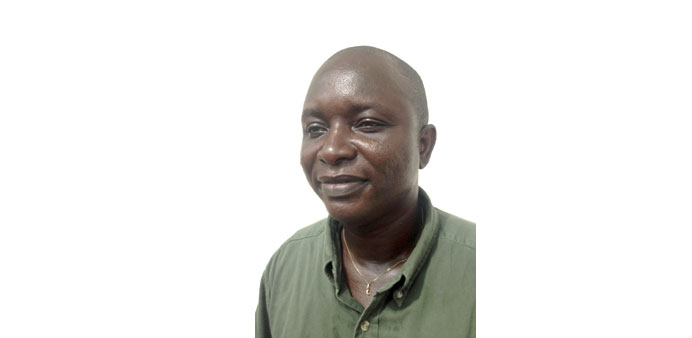Reuters/Freetown
The head doctor fighting an outbreak of the deadly Ebola virus in Sierra Leone has himself caught the disease, one of a growing list of medical workers infected while battling to halt its spread across West Africa.
Ebola has killed 632 people across Guinea, Liberia and Sierra Leone since an outbreak began in February, putting strain on a string of weak health systems facing one of the world’s deadliest diseases despite waves of international help.
In a sign of the growing frustrations with the failure of region’s governments to tackle the outbreak, a Liberian whose brother died from the disease set fire to the health ministry in protest yesterday.
A statement from the president’s office said 39-year-old Sheik Umar Khan, a Sierra Leonean virologist credited with treating more than 100 Ebola victims, had been transferred to a treatment ward run by medical charity Medecins Sans Frontieres.
A source at the ward confirmed that the doctor was alive and receiving treatment, but gave no details of his condition.
Khan has been hailed a “national hero” by the Health Ministry for his efforts to lead the fight against an outbreak that has killed 206 people in the West African nation.It was not immediately clear how Khan had caught the virus. His colleagues told Reuters that he was always meticulous with protection, wearing overalls, mask, gloves and special footwear.
Three days ago, three nurses working in the same Ebola treatment centre alongside Khan died from the disease.
Tarik Jasarevic, a spokesman for the World Health Organisation, said around 100 health workers had been infected by Ebola in the three countries, with 50 of them dying.
“Personal protection equipment is very hot. But there is a very strict procedure how you wear it, how you take it off, what can be re-used or not,” he said.
Earlier this month, Samuel Muhumuza Mutoro, a senior Ugandan doctor working in Liberia died after treated infected patients. WHO figures showed that there were 19 new death within the four days since its previous statement.
The Ebola outbreak started in Guinea’s remote southeast and has since spread across the region’s poorly controlled borders. Symptoms of the highly infectious disease are diarrhoea, vomiting and internal and external bleeding.
Part of Liberia’s health ministry was destroyed yesterday when Monrovia resident Edward Deline set fire to the building in protest over the death of his 14-year-old brother from Ebola.
“The health (workers) here are not doing enough to fight this virus. They are taking this to be a money making thing while our people are dying,” Deline told journalists after he was arrested by police.
During a Reuters visit to the Kenema treatment centre in eastern Sierra Leone in late June, Khan said he had installed a mirror in his office, which he called his “policeman”, to check for holes in his protective clothing before entering an isolation ward.
Nevertheless, Khan said he feared Ebola. “I am afraid for my life, I must say, because I cherish my life,” he said in an interview, showing no signs of ill health at the time.

Sheik Umar Khan
